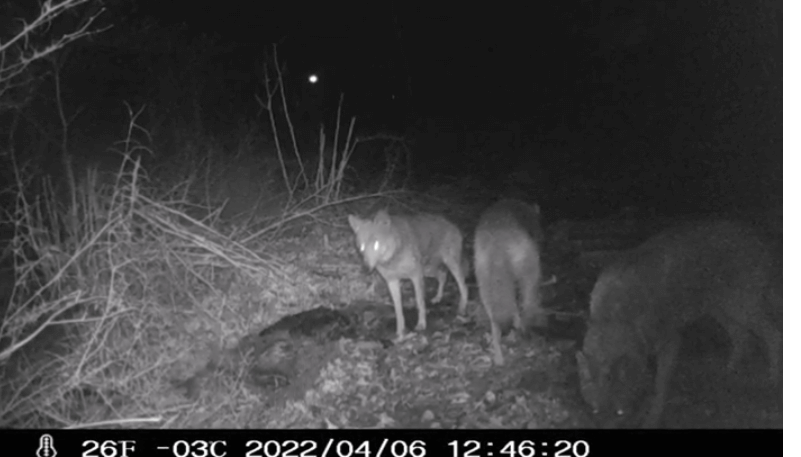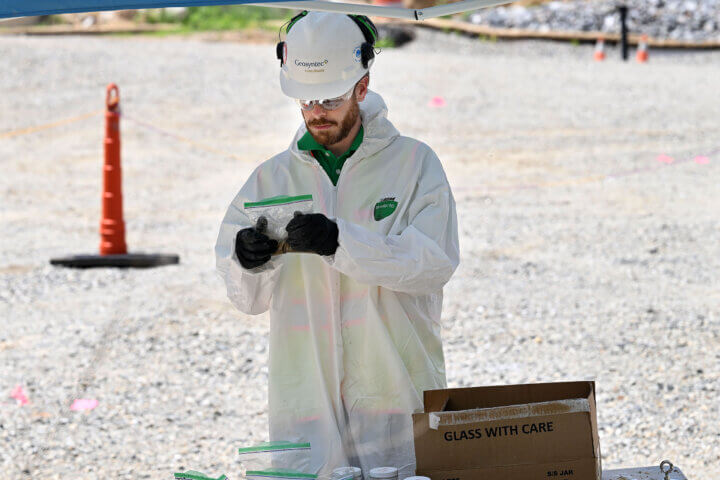Change is in the air and the peepers are peeping! The redwing blackbirds are back in the marshes and the skunk cabbage is coming up in the swamps. At long last, signs of Spring are finally here, signaling the annual tilting of the earth back toward the sun.
Last month, I wrote about cold snaps and winterkill and the role that scavengers play, as the forest’s cleanup crew. This reminded me of a video I put together last April.
Walking back from the woods one day, I noticed a deer carcass on the railroad tracks close to our home in West Concord. To avoid any other animals being struck, I gently pulled the carcass off the tracks.
I realized this could be a unique opportunity to view wildlife, so I set up a remote game camera on a nearby post, pointed at the carcass. The camera can take infrared stills and video in the dark, triggered by motion.
The next morning, I was surprised to find that I had over 150 photos and videos! I was sure the device had malfunctioned, until I looked at the memory card on my computer. Wow! I edited the images and video into a 12-minute video, with text, and posted it on YouTube. It’s a bit long, but I wanted to include all the scavenger action from just one night. I hope you find it as fascinating as I do, especially considering the in-town location.
The predators (turned scavengers) you will see in the video are all far more scared of us than we should be of them and, in most cases, prefer to remain unseen and keep to themselves. Again, this happened last year, at night, and the carcass is long gone.
These remote game cameras are worth considering. Inexpensive and simple to operate, they allow biologists to take surveys of wild animals that would previously have to be physically trapped or spotted in-person. Many conservation groups, including the World Wildlife Foundation (WWF), employ this technology to prove the existence of critically endangered animals.
In 2013, for example, in the jungles of Borneo, a remote WWF “camera trap” snapped a picture of a Sumatran Rhino, one of the rarest animals on the planet. The photo, providing proof of its continued existence in the wild, triggered an effort to save the species. Today, about 100 remain and protections are in place. These magnificent animals might very well have been allowed to go extinct due to poaching and logging if it were not for the remotely-captured WWF footage.
Just last year, images of a wild bird thought extinct for 140 years were captured by a similar camera in Papua New Guinea. A team from the Search for Lost Birds effort spent a grueling month on a remote, jungled island and captured the first footage of a “black-naped pheasant-pigeon” just hours before they were scheduled to leave. Imagine the thrill! This effort to find “lost” birds is being led by ReWild.org, a “force multiplier” environmental organization founded by actor Leonardo DiCaprio that harnesses technology and networks of people to protect nature.
Omnipresent cameras are both a curse and blessing. Social media uses them to bombard us with images of unachievable perfection. But this compact and increasingly inexpensive camera technology also powers these remote camera traps, giving scientists a low-impact way to gather and share evidence of the existence of very rare species that desperately need our help.
Maybe next time you spend some Time Outdoors, you will use your smartphone’s tiny camera to take nature pictures and share with friends. If you do, consider that, somewhere on the planet, another “lost species” might be about to walk in front of a remote game camera that uses similar technology, alerting conservationists to its plight. Click!
____________________
Wilson Kerr lives in Concord and is an avid outdoorsman and amateur naturalist. This column is designed to help grow awareness of the wonders of nature. In this increasingly fast-paced and technology-packed world, it is important to stop and take in the beauty of our area and the animals that inhabit it. The author hopes this recurring column will be read by families and used as a teaching tool and that you will spend more… Time Outdoors.






